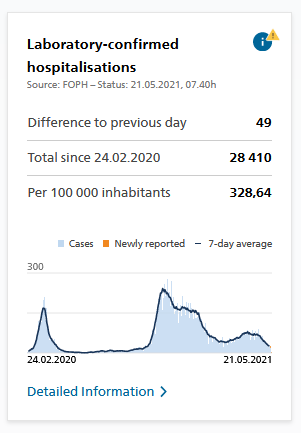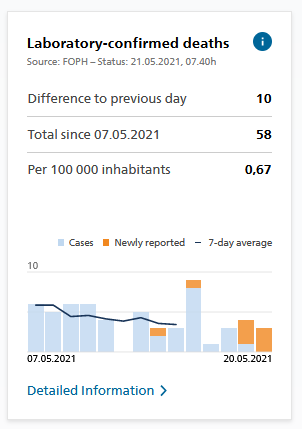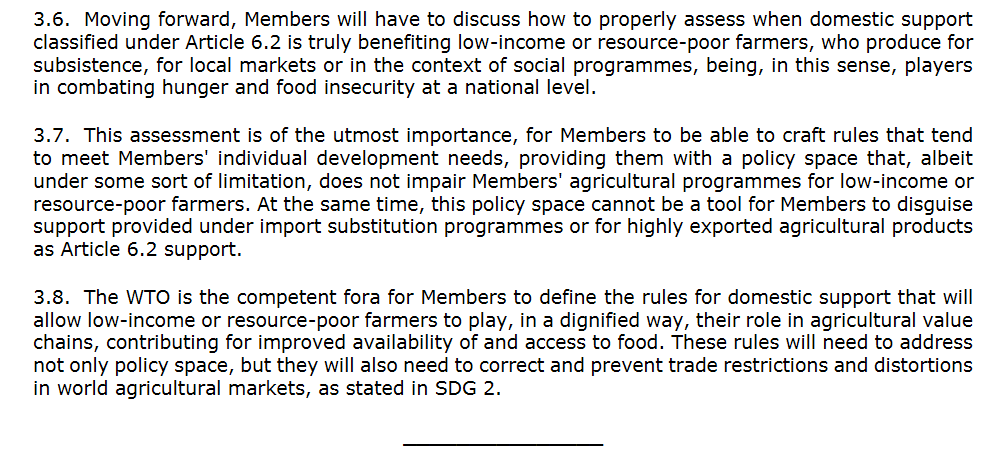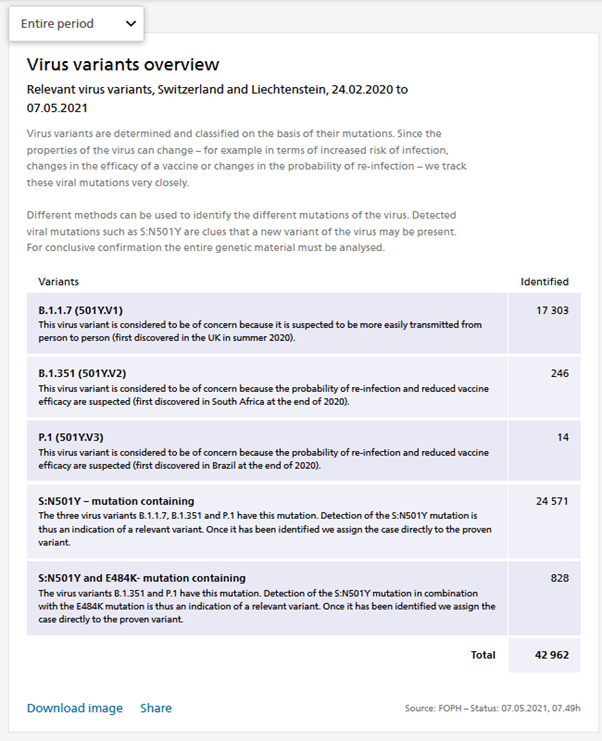
(Nervously starts typing what’s going to be an unpopular thread)
India, South Africa and allies have now circulated a new draft for the WTO intellectual property waiver for COVID-19.
KEI Online has it. Not yet in WTO DocsOnline—Monday?
1/19 #TRIPSwaiver keionline.org/wp-content/upl…
India, South Africa and allies have now circulated a new draft for the WTO intellectual property waiver for COVID-19.
KEI Online has it. Not yet in WTO DocsOnline—Monday?
1/19 #TRIPSwaiver keionline.org/wp-content/upl…

“It’s been a long time comin’
It’s goin’ to be a long time gone
“And it appears to be a long
Appears to be a long
Appears to be a long time
Yes, a long, long, long, long time before the dawn”
So long to prepare, so little changed, lots to do
2/19
It’s goin’ to be a long time gone
“And it appears to be a long
Appears to be a long
Appears to be a long time
Yes, a long, long, long, long time before the dawn”
So long to prepare, so little changed, lots to do
2/19
It’s hard to believe this draft was intended to enable quick agreement to waive obligations under the WTO intellectual property (“TRIPS”) agreement
It’s extreme—a blank cheque with some minor tweaks—not a draft than can be quickly settled.
3/19 keionline.org/wp-content/upl…
It’s extreme—a blank cheque with some minor tweaks—not a draft than can be quickly settled.
3/19 keionline.org/wp-content/upl…

It’s easy to fix on slogans without thinking.
Too many people assume the waiver will allow a surge in COVID-19 vaccines worldwide. @EmilyThornberry and @UKLabour are among them.
Vaccines are not easy to copy. A waiver might have no impact.
4/19 theguardian.com/commentisfree/…
Too many people assume the waiver will allow a surge in COVID-19 vaccines worldwide. @EmilyThornberry and @UKLabour are among them.
Vaccines are not easy to copy. A waiver might have no impact.
4/19 theguardian.com/commentisfree/…

What about the draft itself?
1. PREAMBLE: context, listed events, and the conclusion that a waiver is justified—although no actual link is made, such as intellectual property being an obstacle. Lip service on preserving incentives.
5/19 #TRIPSwaiver keionline.org/wp-content/upl…
1. PREAMBLE: context, listed events, and the conclusion that a waiver is justified—although no actual link is made, such as intellectual property being an obstacle. Lip service on preserving incentives.
5/19 #TRIPSwaiver keionline.org/wp-content/upl…

2. COVERAGE: types of intellectual property (unchanged), and a more detailed list of products.
The cited sections: 1 = copyright, 4 = industrial designs, 5 = patents, 7 = trade secrets. Part 3 = enforcement.
We can expect negotiations on this
6/19 keionline.org/wp-content/upl…
The cited sections: 1 = copyright, 4 = industrial designs, 5 = patents, 7 = trade secrets. Part 3 = enforcement.
We can expect negotiations on this
6/19 keionline.org/wp-content/upl…

And products?
So far, the US has only mentioned vaccines—none of the other products.
New Zealand has also only said vaccines.
We don’t know yet what their position is on other products.
I’d expect some haggling over this
7/19 #TRIPSwaiver ustr.gov/node/10649
So far, the US has only mentioned vaccines—none of the other products.
New Zealand has also only said vaccines.
We don’t know yet what their position is on other products.
I’d expect some haggling over this
7/19 #TRIPSwaiver ustr.gov/node/10649

3. DURATION: At least 3 years. General Council decides on end-date.
Normally requires consensus agreement ➡️ if one country objects, the waiver will continue.
Or put it to a vote?
This has ZERO chance of being accepted. Why propose it?
8/19 keionline.org/wp-content/upl…
Normally requires consensus agreement ➡️ if one country objects, the waiver will continue.
Or put it to a vote?
This has ZERO chance of being accepted. Why propose it?
8/19 keionline.org/wp-content/upl…

4. NETFLIX AND SPOTIFY NOT COVERED: Paragraph 3 excludes recordings and broadcasts. Copyright protection on them would continue
Uncontroversial, I think
9/19 #TRIPSwaiver keionline.org/wp-content/upl…
Uncontroversial, I think
9/19 #TRIPSwaiver keionline.org/wp-content/upl…

5. LEAST-DEVELOPED COUNTRIES: Their exemption from having to protect intellectual property rights is unaffected
6. REVIEW by the General Council: standard practice.
Both uncontroversial
10/19 #TRIPSwaiver keionline.org/wp-content/upl…
6. REVIEW by the General Council: standard practice.
Both uncontroversial
10/19 #TRIPSwaiver keionline.org/wp-content/upl…

7. NO LEGAL CHALLENGE via WTO dispute settlement, including “non-violation” cases—an expected right is lost because of a country’s actions, even when no agreement is violated.
But how is “conformity” established if no legal challenge is allowed?
11/19 keionline.org/wp-content/upl…
But how is “conformity” established if no legal challenge is allowed?
11/19 keionline.org/wp-content/upl…

I can’t see that last point being accepted by other WTO members.
______
So much for the draft. Is that it?
That’s what’s IN the draft. Also important: what’s NOT in the draft
12/19 #TRIPSwaiver keionline.org/wp-content/upl…
______
So much for the draft. Is that it?
That’s what’s IN the draft. Also important: what’s NOT in the draft
12/19 #TRIPSwaiver keionline.org/wp-content/upl…
What’s not in the draft waiver? Terms and conditions
1. CONDITIONS: Other WTO members may want some constraints on applying the waiver—for example to prevent products made under the waiver from being exported to countries that do not use the waiver
13/19 #TRIPSwaiver
1. CONDITIONS: Other WTO members may want some constraints on applying the waiver—for example to prevent products made under the waiver from being exported to countries that do not use the waiver
13/19 #TRIPSwaiver
A previous waiver contained just such a provision. It required different packaging for easier detection and other methods. India has called this “onerous and time-consuming”
I think we can expect more haggling over this
14/19 #TRIPSwaiver pmindiaun.gov.in/public_files/a…
I think we can expect more haggling over this
14/19 #TRIPSwaiver pmindiaun.gov.in/public_files/a…

2. TRANSPARENCY: Will actions taken under the waiver have to be notified? This might sound like unnecessary red-tape but it is a fundamental principle of the WTO—legal reference: GATT Art10, GATS Art3, TRIPS Art63.2)
It’s happened before
15/19 wto.org/english/tratop…
It’s happened before
15/19 wto.org/english/tratop…

This is another part of what India called “onerous and time consuming” conditions.
It’s quite possible that there will be lengthy haggling over this too.
16/19 #TRIPSwaiver pmindiaun.gov.in/public_files/a…
It’s quite possible that there will be lengthy haggling over this too.
16/19 #TRIPSwaiver pmindiaun.gov.in/public_files/a…

In any case, some notification will be needed—intellectual property agreement Art63.2.
Countries’ laws (except least-developed) comply with the agreement. To use the waiver, they must amend their laws and regulations. That must be notified.
17/19 wto.org/english/docs_e…
Countries’ laws (except least-developed) comply with the agreement. To use the waiver, they must amend their laws and regulations. That must be notified.
17/19 wto.org/english/docs_e…

The best we can hope for is that the US & co produce counter proposals and all members negotiate constructively and receptively.
Past experience suggests that won’t happen. But as some people keep telling us “there’s always a first time”
18/19
Past experience suggests that won’t happen. But as some people keep telling us “there’s always a first time”
18/19
The important point:
This is not just “yes/no” to the waiver or the latest draft
It’s about what the waiver contains, and that will take a long time to sort out—if it can be sorted out at all.
Even then, the impact on vaccines is unclear.
19/19
This is not just “yes/no” to the waiver or the latest draft
It’s about what the waiver contains, and that will take a long time to sort out—if it can be sorted out at all.
Even then, the impact on vaccines is unclear.
19/19
• • •
Missing some Tweet in this thread? You can try to
force a refresh















































